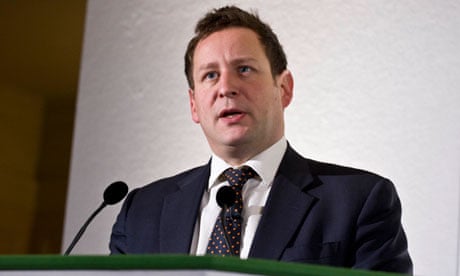Internet service providers such as BT should be allowed to abandon net neutrality and prioritise users' access to certain content providers, the communications minister Ed Vaizey said in a speech today.
The move away from net neutrality in the UK will prove controversial as it opens the door for ISPs to favour some websites in terms of the volume and speed of the delivery of their content to users, while others given lower priority could see their internet traffic suffer.
Both Google and the BBC have warned against allowing ISPs to discriminate in their delivery of content in recent months, saying that such moves would stifle online innovation. Abandoning the so-called "net neutrality" principle that all internet traffic – content, platforms and websites – should be treated equally would harm growth of the medium, the companies warned.
Ditching net neutrality could lead to websites paying ISPs to ensure their content gets priority.
Vaizey today said ISPs should be free to favour one content provider over another as long as they inform customers in order to manage internet traffic.
"Under the new provisions providers must present information about their service, including the nature and extent of their traffic management policies and their impact on service quality in a clear, visible and easy to understand form for all their customers," Vaizey told a telecoms conference hosted by the Financial Times in London.
He said a lightly regulated internet was "good for business, good for the economy and good for people". "Consumers should have the ability to access any legal content or service. Content and service providers should have the ability to innovate and, most importantly, to reach users," Vaizey added.
Last month Erik Huggers, the BBC director of future media and technology, warned against abandoning net neutrality in the corporation's submission to a consultation on the issue being conducted by Ofcom and the European Commission.
"An emerging trend towards network operators discriminating in favour of certain traffic based on who provides it, as part of commercial arrangements, is a worrying development," Huggers wrote on the corporation's BBC Internet blog.
"This innovative and dynamic ecosystem, that enables huge public value, could be put at risk if network operators are allowed to use traffic management to become gatekeepers to the internet."
Vaizey today said that early responses to Ofcom's consultation showed there was "broad agreement on the need for traffic management".
He added "there is not yet evidence of any impact either on competition or consumers from traffic management".
"We are still at an early stage here. Such impacts and harms could arise in the future, and greater transparency is required to combat this," Vaizey said.
Jim Killock, executive director of the campaigning organisation Open Rights Group, today warned: "Removing net neutrality is likely to reduce innovation and reduce people's ability to exercise their freedom of speech.
"ORG will campaign against any market abuse, if companies like BT, Sky and Virgin restrict customer's internet access for market advantage."

Comments (…)
Sign in or create your Guardian account to join the discussion